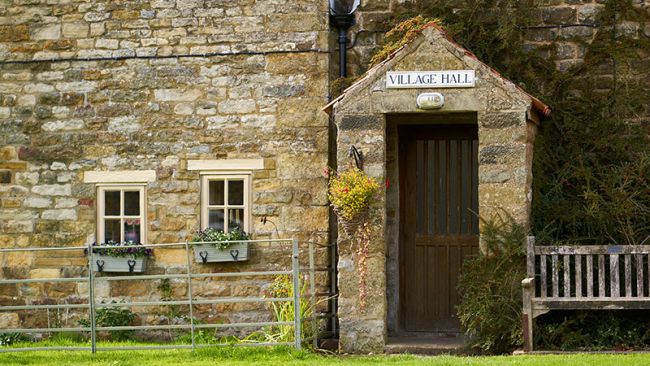| In times of crisis, British communities have always shown an extraordinary ability to pull together. Having been through a world war and eight financial crises in the last century alone, there is no denying that, as a nation, we are well acquainted with the challenge of confronting hardships.
While COVID-19 does not discriminate, the circumstances surrounding an individual’s underlying health, access to essential foods, medicines and healthcare, along with insecurities around housing and income, mean that on an individual level the current situation is affecting people disproportionately within our communities.
However, if past challenges have proven anything, it’s that from community spirit grows great resilience. And over the past few months, we have seen a ground swell in community efforts to provide support, compassion and hope in these uncertain times.
United in a common goal, we turn the spotlight on just a handful of the British communities who have pulled together through the COVID-19 pandemic, and who continue to highlight the renewed importance of community spirit as we move forward with the “new normal”.
Reaching out to the vulnerable and the elderly For the elderly and the vulnerable, lockdown proved more debilitating than it did for the wider public.
According to Charlotte Lynch of Age UK, “Coronavirus is having a disproportionate impact on older people’s health. Not only are older people at increased risk of severe implications if they contract coronavirus […] but sustained periods of social distancing or shielding are having a negative impact on many older people’s mental health.”
Recognising the significant strain on these demographics, the city of Exeter developed an online volunteer ‘matching’ service.
The service assisted organisations or individuals eager to help, as well as vulnerable members of the community, to create support partnerships based on their respective capabilities and requirements. Types of support included food deliveries, gardening and even regular friendly phone calls, among the many options.
Meanwhile, Cambridge news publication CambridgeshireLive, said that COVID-19 has “brought out the best in Camb’s communities”, with numerous volunteer forces springing enthusiastically into action to lend a hand to those needing it most.
Among Cambridge’s most generous individuals is chef Damian Wawrzyniak of Booker Catering, who invited elderly and vulnerable individuals, “who need basic sanitary goods like hand gel, toilet paper, food etc”, to reach out to him via Twitter.
Nourishing our frontline health workers For thousands of frontline health workers, it is not just the incomparable stress and pressure the current situation that has proved a struggle. NHS staff nurse, Sara Daneson, spoke up regarding her struggles in feeding herself and her family: “Our shifts are so long that by the time we have finished, shops are closed or have run out of fresh produce.”
It was thus that ‘Feed the Frontline’ came into being: a brand new charity established by the vendors of London’s Borough Market to provide much-needed sustenance for the city’s front-line workers, delivering fresh, high-quality produce to four of London’s largest NHS Trusts.
Hardworking staff at Guy’s and St Thomas’, King’s College Hospital, Whittington and South London and Maudsley hospitals have welcomed over 35,000 bags of fresh fruit and vegetables from the charity and their partner suppliers, ensuring frontline staff and their families have access to healthy, quality foods that will nourish and sustain them as they continue to fight for our safety.
Lord Mayor of the City of London, William Russell, commended the scheme: “This is a fantastic initiative which is just what our brave and dedicated frontline health workers need to be able to eat healthily after working hard in the hospitals to care for those with COVID-19.”
Since its establishment, Feed the Frontline has expanded their offering to hospitals beyond the capital – including Leeds Teaching Hospital.
The charity is now calling for private donations which will allow them to provide support for even more hospitals across the country.
Community compassion In Overton, the village-wide initiative, ‘Overton Cares’, has seen over 200 community volunteers come together across 31 designated hubs, distributing essential supplies to those who are self-isolating or unable to leave their homes. More recently, the group has also launched the ‘Lockdown Larder’, which caters to those within the community who don’t qualify for traditional foodbanks but who could benefit from some extra non-perishable goods to top up the kitchen cupboards.
Patrick Glynn-Jones, head of Strutt & Parker’s office in Winchester, has been personally involved with the Overton project, volunteering to help support the elderly and the isolated in his community.
“We moved down from London seven years ago,” Patrick reflected, “but very quickly came to learn that this is the most wonderful village to have discovered. It’s such a close-knit community, and Overton Cares is just another example of how important that sense of community is.
“As a family, we feel so fortunate to have landed here – especially coming from London where you can often feel quite disconnected from your neighbours despite them being so much closer to you.
“I truly hope that at the end of this, communities across the country will have become as close as we are. There has never been such a great opportunity for us all to rediscover the value in that human connection with our neighbours.”
A shift in attitude Fast-forward just over six months since the first hints of our current hardships, and already we can see a notable transformation in attitude towards community culture across the nation.
Indeed, our renewed awareness of the need to care and be cared for by those around us has been highlighted by the results of research carried out by Anglia Ruskin University (ARU).
Having spent an extended period with six different community organisations, researchers revealed how community activity and involvement will continue to provide a “lifeline” to vulnerable people – whether teenagers, people suffering from dementia, or people living with or caring for those with long-term disabilities or health conditions – in our post-COVID-19 world.
Involvement in community groups, the researchers ascertained, provide people with a sense of purpose, belonging and identity.
One member of a group for sufferers of and carers for dementia said: “[This community] is my lifeblood. That’s the way I look at it. I look forward to it so much every week, I really do.”
Meanwhile, lead author of the report, Dr. Oonagh Corrigan of ARU, said:“While these groups were all set up ostensibly for a purpose, for example a bowls club or a school uniform exchange club, we found that these purposes were often of secondary importance to the users. The social aspect was an overwhelming benefit, allowing users to build relationships with like-minded people and feel a sense of belonging.”
It’s not surprising, therefore, that community is becoming a more prominent factor for those thinking about relocating.
In a survey conducted by Strutt & Parker entitled “Town or country?”, a staggering 74% of respondents opted for rural living over city dwelling – a choice which Director of Research Vanessa Hale concludes to be linked to the need for “stronger community spirit and more connected neighbourhoods.”
In discussion with Strutt & Parker’s InSpire Webinar panel, author and entrepreneur Linzi Boyd explained: “Community is a trend for the future. Trends speed up during a recession, particularly in a pandemic, because habits change, and new market needs occur. We are moving into a space of both off and online. We call this ‘back to nature’ with a fusion of technology. We’ve been living in a virtual world (throughout lockdown), and now people are craving human interaction and community, but retaining that high-tech engagement.”
Whether it’s essential companionship found in social clubs and support groups, or the simple boost in comfort and wellbeing provided by those around us, it’s clear that the sense of community has shone and continues to shine as a beacon of sanguinity throughout Great Britain.
View our previous articles on the future of homes in the town and country. | 


